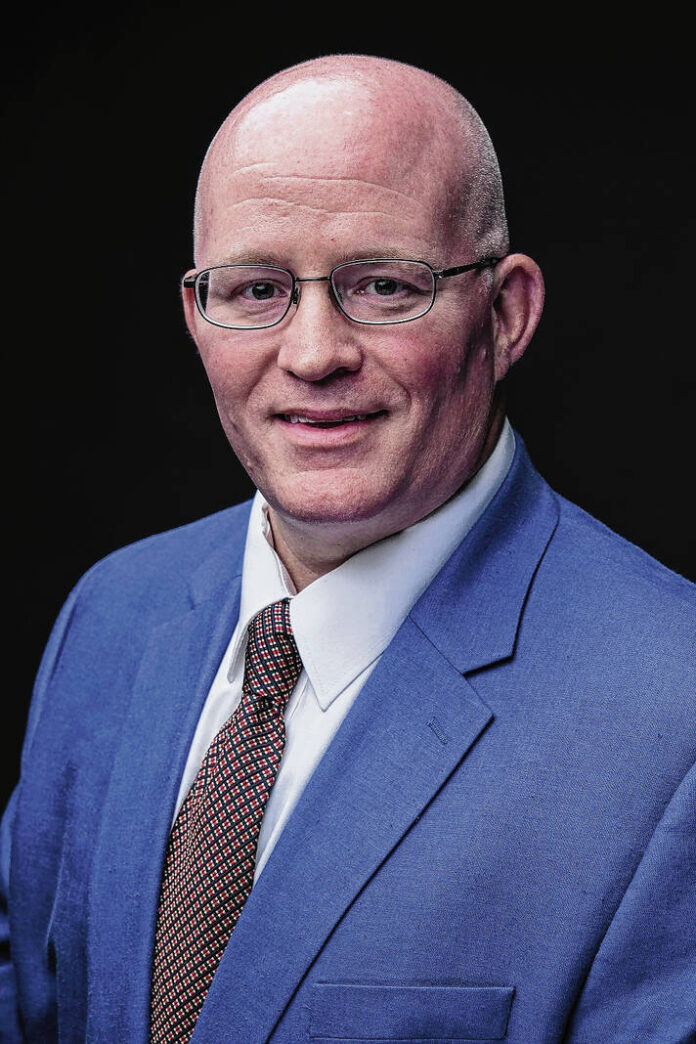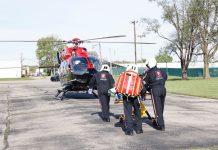Three newcomers are seeking the District 1 seat on the Bartholomew Consolidated School Corp.’s school board.
Anakarina Hurtado, Jason A. Major and David Vincent have filed to run for the seat. Board President Jill Shedd, who currently holds the seat, has chosen not to run again.
Each candidate was asked the same five questions by The Republic; their responses were as follows.
What is the number one thing that motivated you to run for this office?
“I’ve completely fallen in love with this community since I’ve been here,” said Hurtado, “and I just want to give back any way I can. And I think this is a way to do so.”
She said she previously held a Child Development Associate certificate for a few years, worked at a child care facility as an infant teacher and has also tutored students.
In explaining his decision to run, Major said that he’s seen a “disconnect” between the school board and parents during some of the board’s meetings. This made him decide to become more involved.
“I want to try and figure out how we can work as a broader community with the parents, the teachers, the board and administration to turn our students into good citizens,” he said.
For Vincent, having 10 grandkids in Bartholomew County was a good motivator to run. He later said that he has begun paying more attention to the school board recently and “felt led” to become involved.
Do you think teachers are being compensated adequately? What can BCSC do to improve teacher retention and recruitment?
Hurtado said that compensation is the most important tool for teacher retention and appreciation.
“I think it has gone up a little bit, but we need to work more on that, on supporting teachers with payment, as well as supporting their needs in the classroom,” she said.
Major said that, if elected, he would look to the administration for data and guidance regarding appropriate pay for teachers.
“What do we have to do to get teachers to want to teach and want to teach in our community?” he said. “I think that’s a question that is not answered just by the school board, but it takes a lot of effort by the administration, the teachers and the teacher union and the school board working together effectively to answer that question.”
Vincent, whose wife is a retired teacher and whose daughter currently teaches, feels that compensation should be improved, as well as health coverage.
“We need to do everything that we can to increase the stature of our local teachers,” he said.
What can the school corporation do to address the ongoing impacts of the pandemic, both in terms of academic recovery and mental health?
Hurtado said that on the mental health side, it’s important to make sure counselors are available for students and that teachers should also receive some training in this area.
“I think talking and just having one-on-ones with students is important, having that support system for them,” she said. “The pandemic, it kind of put everything on hold. And as we get back into schools and get back to normal life, I think we just need to make sure that the children are well taken care of, that they’re all being heard, they’re all being valued, all their needs are being met within our school system, especially mental health.”
Major said that over the last two years, he’s seen and heard of a few different kids having issues with mental health to the point of considering suicide. If elected, he would want to work with BCSC’s new Director of Wellness, Kristin Beck, to understand her plans and see how the board can help.
“It’s a little disturbing to hear that children are talking about doing the most drastic of things, with possibly ending their life,” he said. “I think that we have to really take that serious and understand all the causes. Some of those could be from the pandemic. Some of those could be from working or learning from home. And we definitely need to have a lot larger conversation around that.”
Vincent said that mental health situations are worthy of attention and may already be getting the focus they need. He said that they should be addressed in an appropriate manner.
In terms of academics, he said, “I think it’s going to be important to, more than ever, concentrate on academics in our schools. I think it’s going to be important to have the safest environment possible for our students and teachers. But I think we’re going to have to pay more attention and total attention to teaching to state standards.”
Over the past couple of years, the relationships between many local school boards and community members have become strained and, in some cases, combative. At a local level, what can both parties do to promote good relations and communication?
Hurtado said that it’s important to have transparency and mutual understanding.
“In the educational side of it, you want to address the needs that need to be addressed in the moment, and you want to — like for example, the school board meetings,” she said. “You don’t want them to go on for five hours, addressing every single need. But as a parent, you do want to get those needs addressed.”
She added that the board should consider having more community engagement through events such as open forums, question and answer sessions, or other ways for parents to present their concerns.
Major likewise said that parent engagement is important. He expressed concern about the board’s policies for public comment, including the three-minute limit and the requirement that the statement be related to an agenda item. He added that in his own experience, emailing board members is not necessarily a satisfactory substitute.
He suggested that it might be good to have a parent committee that could work together to consolidate a list of not just their problems, but also their ideas.
“I think that’s one thing that most of us all end up struggling with,” said Major. “We go to the board with a lot of problems or issues, but not solutions or potential solutions. And I think if there was a parent committee that was allowed to put their ideas together and work collaboratively with the board that there could be a better opportunity to hear those issues and arrive at solutions that make everybody happy.”
Vincent said that it would be good to for board members to spend 30 minutes, prior to each board meeting, as a time to speak with concerned parents.
How do you define critical race theory (CRT), and what is your opinion on it?
“I think every child should be represented in our school system,” said Hurtado. “And I am very, how do I put it — so I want to encourage, in this community, diversity and inclusivity of all children, of all cultures. We have a very diverse community here because Cummins brings in a lot of immigrants, a lot of people from other countries to work for them. So consequently, our children are from different areas of the world. I just think we need to have awareness of different backgrounds, different cultures, and I think that’s what that (CRT) addresses.”
She added that “cultural theory” has never technically been taught in schools.
Major said it is his understanding that critical race theory looks at differences between people groups, whether these are based on gender, race, age or economic status. He believes CRT focuses too much on what’s different about people, rather than seeing the similarities and appreciating each person’s individuality. He sees it as having the potential to cause people to divide into cliques based on their shared traits.
“I think diversity’s very important to anything we do,” he said. “We have to have people from different backgrounds, different perspectives, different understandings. There’s so many different ways that we’re all different that if we work together to understand those differences, we end up with better solutions.”
Vincent said that critical race theory dates back to the 1970s, when researchers put forth the idea that race was connected with certain policies in society. He feels that it doesn’t belong in schools, as the focus should be on academics.
“The more I’ve studied critical race theory, the more confusing it gets,” said Vincent. “And I’m not sure what you mean by saying critical race theory is the same thing as what I mean. It’s just all over the board, and I think we need to treat each other the way we’d like for others to treat us. And God loves everyone. And critical race theory just has no place in our schools.”





